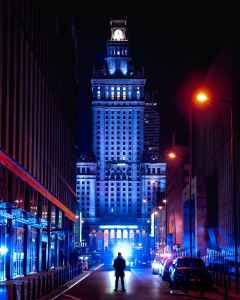Kolkata Literature Festival: A Celebration of Literature and the Writer’s Identity
Introduction
In the heart of Kolkata, the vibrant city renowned for its rich literary heritage, the inaugural ceremony of the three-day Kolkata Literature Festival unfolded on January 26, 2024. The festival commenced with an inspiring address by Sirshendu Mukhopadhyay, a celebrated Bengali writer, who eloquently expressed his thoughts on the significance of book fairs and their profound impact on writers and their sense of identity.
Book Fairs: A Festival of Literature
Mukhopadhyay emphasized the importance of book fairs as festivals that celebrate literature and honor the unique identity of writers. He believes that book fairs provide a platform for writers to connect directly with readers, fostering a vibrant exchange of ideas and perspectives. It is in these interactions that writers are most acutely reminded of their role as storytellers and the profound impact their words can have on readers’ lives.
The Writer’s Identity: A Reflection of Life’s Complexities
Mukhopadhyay shared his insights into the creative process, describing writing as a reflection of the complexities and nuances of real life. According to him, writing is a response to the inner queries that arise from our observations of life and our surroundings. It is a process of capturing these thoughts and emotions on paper, giving them tangible form and allowing them to be shared with the world.
The Significance of Reader Interaction
Mukhopadhyay emphasized the pivotal role of reader interaction in shaping a writer’s identity. He believes that it is through direct engagement with readers at events like book fairs that writers become acutely aware of their status as storytellers. These interactions serve as a constant reminder of the impact their words can have and the responsibility they carry as writers.
Remembering Samaresh Majumdar: A Literary Legacy
During the ceremony, Mukhopadhyay also expressed his humility and gratitude upon receiving the ‘Samaresh Majumdar Smriti Samman,’ an award honoring the memory of the late literary icon Samaresh Majumdar. He acknowledged the immense contribution of Majumdar to Bengali literature and expressed his admiration for the enduring legacy of his works.
The Future of Bengali Literature in the Digital Age
The Kolkata Literature Festival also provided a platform for discussions on the future of Bengali literature in the rapidly evolving digital landscape. Eminent writer Sanjib Chattopadhyay, who inaugurated the event alongside Mukhopadhyay and other veteran Bengali writers, expressed optimism about the future of Bengali literature and printed works in the face of the growing popularity of e-books and digital media. He emphasized the need for writers, readers, and publishers to collaborate in preserving and promoting the vitality of printed Bengali literature.
Diverse Literary Showcase
The Kolkata Literature Festival showcased a diverse array of literary works, spanning both fiction and non-fiction genres, with a special focus on the rich cultural heritage of Bengal. The festival provided a platform for authors, poets, and literary enthusiasts to engage in discussions, readings, and workshops, celebrating the beauty and power of the written word.
Conclusion
The Kolkata Literature Festival served as a testament to the enduring power of literature and its ability to bring people together in celebration of the written word. The insights shared by Sirshendu Mukhopadhyay and other eminent writers highlighted the importance of book fairs in fostering a sense of community among writers and readers. The festival also addressed the challenges and opportunities presented by the digital age, emphasizing the need for collaboration and support to ensure the continued vitality of Bengali literature in the years to come.




